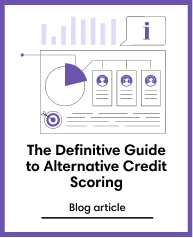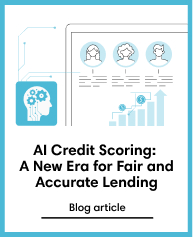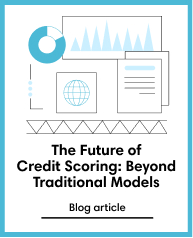Credit Scoring
Mar 31, 2022
Country Spotlight - France, Fast-Growing Fintech Hub in Europe
Subscribe to our newsletter

France and its Fintech development
When the UK announced its decision to secede from the EU, France made clear its ambition to play a leading role in the fintech sector. President Emmanuel Macron promised to make France into a “startup nation” and has since pushed through a handful of labour reforms to make France more appealing to investors.
Unlike other countries in Europe, France has a thriving Fintech ecosystem: from payment service providers, lending and crowdfunding platforms to algorithmic or cryptocurrency trading companies.
By 2021, France had more than 1,200 fintechs*, and while the UK is expected to attract most of the funding from Europe, there are significant opportunities for French fintechs.
*https://sifted.eu/articles/pennylane-raises-18-4m/
Digital Transformation
The digital boom, accelerated by COVID 19, impulsed the growth of digital channels, making them essential in this new reality. Mobile payments and lending platforms are of great interest for consumers compared to previous years, thus increasing the use of mobile phones.
According to the report published by We are social and Hootsuite, France has a total population of 65.36 million, of which 67.21 million have a mobile phone, so on average there is more than 1 mobile device per inhabitant. As well, 59.47 million people are Internet users accounting for 91% of the total population, with an average time spent online of 5 hours 37 minutes.
*We Are Social and Hootsuite report, 2021.
Invisible to the Financial sector
Despite this digital transformation, the world is still far from being financially inclusive. Thousands of people are still unbanked, excluded from products such as insurance, loans, and mortgages. In France, 94% of the population are part of the banking system, 55% carry out credit card transactions, and there are 98.3 ATMs for every 100,000 adults*. However, 6% of the population cannot prove financial solvency and are unable to access credit.
As a consequence, fintechs are taking on the challenge of inclusion with companies like PayPal, Chime, Cash App and Venmo offering banking services with reduced costs and greater access to credit.
*Global Finance and Merchant Machine 2021.
Growth in the Fintech ecosystem
In the context of the pandemic, the financial industry's role has proven essential, and startups have known how to resist, strengthening their strategic, dynamic and attractive international positioning in 2020.
The French fintech ecosystem is one of the most dynamic in Europe which makes Paris an attractive financial centre. Moreover, the French government is playing a key role in this development by investing heavily to make Paris a key player in the fintech economy.
Paris’s growth as a tech hub has been aided by government initiatives such as the Station F (the world’s biggest startup campus). In addition, the French Tech Visa Programme also offers foreign entrepreneurs and investors a four-year visa to move to Paris with their families. Thus, the fintech ecosystem is growing from within France and from abroad due to legal incentives.
France has proven to be much more resilient than its English and German neighbours in 2020: it is the only country that has grown despite the COVID 19 pandemic. By October 2021, French fintechs raised €2,071 million (2.5 times the amount raised in the entire year of 2020).*
*France FinTech and Bpifrance published the 2021 Landscape of French Fintechs on the opening of the FinTech Revolution. Topics discussed in this event.
Alternative Scoring for Financial Inclusion
The accelerating digitisation of transactions produces an increasing variety and volume of consumer data. With machine learning technology, a growing amount of data is being used to create predictive models that assess creditworthiness.
Alternative credit scoring refers to the use of behavioural data from digital platforms, apps and other non-traditional data sources for a complete credit risk assessment. For example, unlike a traditional credit bureau where credit history is essential, alternative scoring takes into account data from multiple data sources such as phone numbers, mobile wallets, geographic location, bill payment history, and social media usage.
The alternative financing market continues to grow year after year. From $200 million in 2014, it rose to $1.66 billion in 2020. In the past year, peer-to-peer business lending was the largest segment, worth $400 million.** The alternative lending market includes bank-independent loan allocation for SMEs (Crowdlending) and personal loans (Marketplace Lending or so-called Peer-to-Peer lending) through private or institutional investors via online platforms.
Compared to the total loan industry, despite the development of fintech and the introduction of new financing instruments, traditional bank loans have been able to keep their leading position. In 2019, more than 47 percent of French households had taken out at least one credit.
Given that in France credit bureaus do not exist and traditional scoring models only rely on “negative” credit reporting, the growth of the alternative financing markets is expected to continue. Financial institutions do not have information on the indebtedness of good customers, particularly information on loans taken out and payment records. Alternative data can play a significant role in reducing data asymmetry and allowing financial institutions to approve more people at fairer terms.
** https://www.statista.com/outlook/dmo/fintech/alternative-lending/france
Credolab
Credolab offers a digital scoring solution based on evidence to predict consumer behaviour, speed up credit processing operations, and improve credit risk management.
With alternative data and machine learning, lenders can calculate the credit scores based on people’s mobile and web behavioural data— making lending decisions even in the absence of positive credit information.
Learn more about the solutions offered by Credolab





